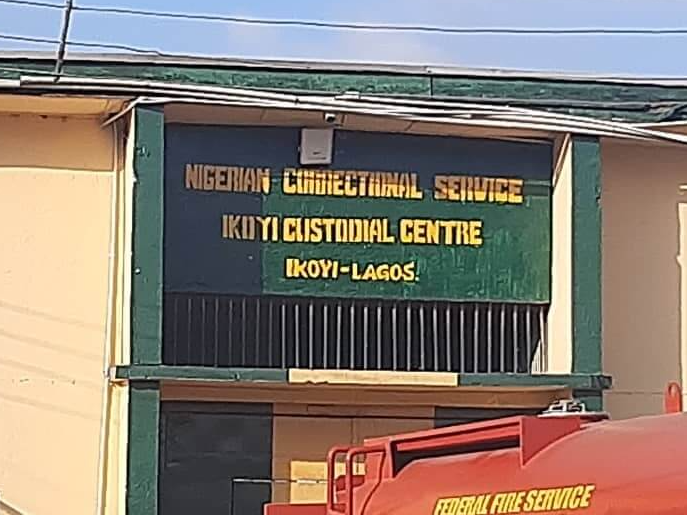The news that over 8,246 inmates in Nigerian correctional centres were living with mental illnesses is a human story of quiet suffering behind high walls. The alarming figures point at an emerging crisis scarcely mentioned in the media. But it isn’t all gloomy.
Amidst the shortage of psychological care, the Nigerian correctional service (NCoS) has turned to an unlikely frontline of care.
It employs trained inmate-leaders who watch for signs of distress and raise the alarm when someone’s mental health begins to fail. It’s not a perfect system, but in a place where one psychologist might be responsible for hundreds of inmates, it’s often the only way to catch a breakdown before it spirals.
These inmate leaders have become the unsung heroes of mental healthcare in prison. They see what overworked staff might miss: an untouched tray of food, a sudden reluctance to speak, a gaze that stares straight through the walls.
When they report it, doctors or nurses step in early, before a bad day becomes a breakdown. It’s a fragile system, but it works.
To strengthen it, the NCoS has formed a psychological services unit and partnered with psychiatric associations.
Now, in 12 major custodial centres, consultants arrive with clipboards, medication and the kind of attention that inmates rarely receive. It’s not nearly enough to cover the entire country, but it is proof that partnership can slip hope through even the smallest cracks in the walls.
Still, medication remains one of the toughest challenges. Assistant Controller General Mohammed Bashir admitted that while the government allocates funds, they vanish quickly against the scale of need. Psychiatric drugs run out within weeks, forcing staff to improvise care.
Where government budgets have faltered, private hands have plugged in support. NGOs and corporate donors have supplied medicines as acts of social responsibility. The changes are visibly manifested in the beneficiary facilities, where inmates sleep better and conversations thrive.
But this contends with another notable challenge—location. Most of Nigeria’s mental-health specialists are concentrated in its two biggest cities—Lagos and Abuja—far from the locations of many prisons.
Experts suggest dispatching a pair of mental-health professionals to each state to rectify the imbalance. In response, several NGOs have deployed mobile teams—complete with counsellors, psychiatric nurses and medication—to remote custodial centres.
What is happening within Nigeria’s correctional centres is a clear demonstration of emerging solutions. There are inmate leaders standing guard over fragile minds, psychiatric specialists making long journeys to deliver care, private companies quietly keeping medicine shelves from going bare, and mobile teams crossing long distances to deliver quality care.
Each is a piece of a larger truth: justice is not only measured in sentences served but in humanity preserved. In the silence of a prison yard, where the clang of a gate once marked the start of despair, the sound of help arriving in any form is the beginning of something else entirely, the possibility of healing.
Over 8,246 inmates in Nigerian correctional centres suffer from mental illnesses, marking a significant yet often overlooked crisis. Due to limited psychological care, the Nigerian Correctional Service (NCoS) employs trained inmate-leaders to monitor mental health signs, providing crucial early intervention for those in distress. Despite the challenges posed by underfunding and medication shortages, partnerships with psychiatric associations and NGOs help improve the situation. Psychiatric consultants have been deployed to 12 major centres, enhancing inmate care.
However, most mental-health professionals are located in Nigeria's major cities, leaving remote prisons underserved. NGOs have responded by sending mobile mental-health teams to these areas. These efforts collectively demonstrate a progress toward preserving inmate mental wellness, emphasizing the importance of humane care in justice. Through these initiatives, the clanging of prison gates now heralds hope and the potential for healing.






